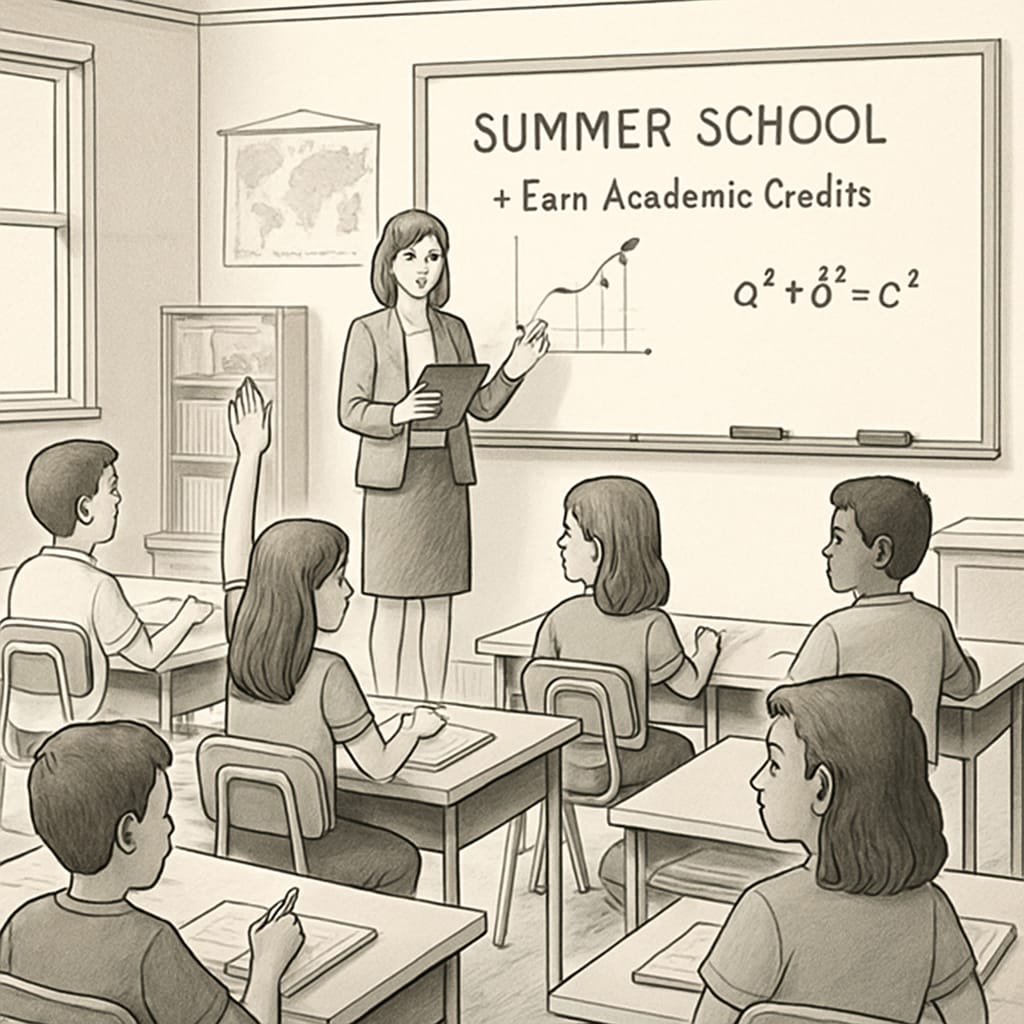Struggling with credit deficiency can be overwhelming for high school students, especially as graduation approaches. However, even with limited time left, catching up on missed credits is achievable through proactive planning, diversified learning opportunities, and consistent effort. In this article, we outline practical strategies to help students overcome credit deficiencies and graduate on time.

Understanding the Challenge of Credit Deficiency
Credit deficiency occurs when students fail to meet the required number of academic credits to graduate high school. This can result from missed classes, failed coursework, or unforeseen circumstances like illness or personal challenges. According to Wikipedia, academic credits represent the workload and accomplishments in specific subjects, making them a critical graduation requirement.
If you find yourself facing this issue, it’s essential to act swiftly. Delaying solutions can compound the problem, leaving you less time to recover. Therefore, understanding your school’s requirements and identifying gaps in your transcript should be your first step.
Practical Steps to Catch Up on Credits
To address credit deficiencies, high school students can adopt several effective strategies:
- Consult a counselor: Your school counselor can help you create a personalized plan to catch up on credits. They can identify available resources like summer school, online courses, or credit recovery programs.
- Enroll in online learning: Platforms such as Khan Academy or other accredited online schools offer flexible opportunities to earn credits outside regular school hours.
- Take summer classes: Many schools provide summer sessions specifically designed for students needing extra credits. These are often shorter and more intensive, helping you focus on specific subjects.
- Prioritize electives: If graduation requirements include elective credits, consider taking easier electives to quickly fulfill those requirements while focusing on core subjects.
- Utilize after-school programs: Some schools offer after-school credit recovery programs where students can retake failed courses or complete additional assignments.

Staying Motivated and Organized
Catching up on credits requires discipline and dedication. Here are some tips to stay on track:
- Set realistic goals: Break down your credit recovery plan into manageable steps. Focus on completing one course or credit at a time.
- Create a schedule: Allocate specific hours each day for studying and completing assignments. Consistency is key to making progress.
- Leverage support systems: Reach out to teachers, family members, and peers for encouragement and guidance. Building a support network can boost your confidence.
- Monitor your progress: Regularly review your achievements and adjust your plan as necessary to ensure you’re meeting deadlines.
In addition, staying mentally and physically healthy is crucial. Balancing academic recovery with personal well-being will help maintain your focus and energy levels.
The Role of Alternative Learning Options
In today’s digital age, students have access to alternative learning methods that can make credit recovery more accessible. For example, many accredited online schools and programs allow students to complete coursework at their own pace, providing flexibility for those managing other responsibilities.
Dual enrollment programs are another excellent option. These allow high school students to take college-level courses and earn both high school and college credits simultaneously. According to Britannica, dual enrollment can accelerate academic progress while exposing students to advanced learning experiences.
If traditional school settings feel unmanageable, consider credit recovery schools specifically designed for students with deficiencies. These institutions often offer tailored programs and smaller class sizes to help you succeed.
Final Thoughts: Graduation is Within Reach
While facing credit deficiency can feel daunting, it’s important to remember that graduation is still achievable with the right approach. By leveraging school resources, exploring alternative learning options, and maintaining a positive mindset, high school students can recover credits and graduate on time.
Act now, stay focused, and commit to your academic goals. The path may be challenging, but the reward of earning your diploma is worth the effort.
Readability guidance: This article uses short paragraphs, organized lists, and clear subheadings for ease of reading. Active voice is prioritized, with minimal passive constructions. Transition words such as “however,” “therefore,” and “in addition” are used to ensure smooth flow.


